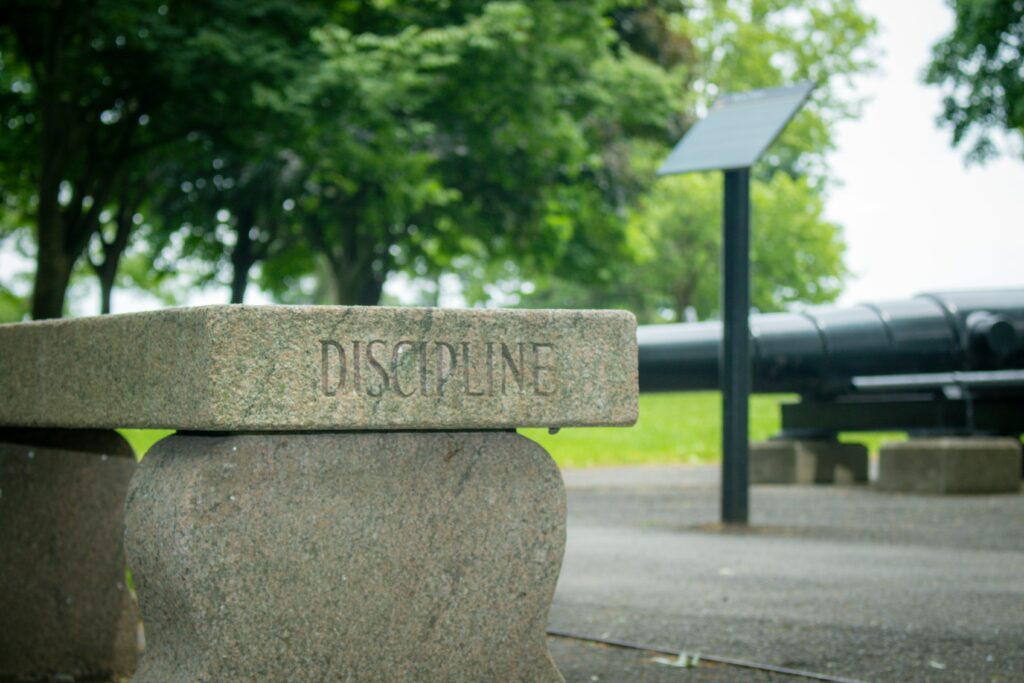
No, I’m not referring to child-rearing, but to how we discipline ourselves. It’s a truism that if you aim at nothing, you’ll certainly hit it. Pretty much everybody understands that you have to set goals, and then persist in pursuing them, in order to accomplish anything worthwhile.
There’s a whole industry of advisors, people who are happy to coach you on making the best of life—whether on the secular side or on the spiritual. Reading these works discerningly and thoughtfully can be highly profitable.
More reliably, though, the Scripture addresses this topic extensively. A series of blog posts is not the place for a comprehensive survey of the biblical theology of personal discipline, but it’s reasonable to focus on a single passage that concentrates on the idea.
I find such a passage in Philippians 4. It’s a concise presentation, and a familiar one; many Christians have memorized the passage, or at least parts of it. In verses 4-9, I find a list of five aspects of our lifestyle—what the King James translators called “conversation”—that we ought to discipline in certain ways. Lord willing, I’ll devote a post to each of the five.
The section opens with Paul’s goal for his (and our) perspective:
Rejoice in the Lord always; again I will say, rejoice (Php 4.4).
Our view of things, he says, should be consistently joyful.
Several things to note about that.
First, this is Paul writing. He has not had an easy life; as he has already noted in this short epistle, he has sacrificed early professional success to follow Jesus (Php 3.4-11), and a few years earlier he has listed for the church in Corinth a litany of hardship (2Co 11.23-29). Even as he writes these words, he is under house arrest in Rome, waiting for a hearing before Caesar that threatens capital punishment. He is not speaking platitudes.
Second, he is writing to Philippi, a church founded out of a night in prison, an earthquake, and government opposition (Ac 16.13-40). He is about to say that this church has already given sacrificially to support his ministry from a distance (Php 4.16). There is nothing flippant or casual about what he is asking them to do.
Rejoice, he says. No, I really mean it, he repeats.
And furthermore, rejoice all the time.
Rejoice in the good times; rejoice in the bad. Rejoice in success; rejoice in failure.
Rejoice in house arrest. Rejoice in the inner prison.
Interestingly, Paul lives that out. He has already written here that his arrest has yielded good things (Php 1.12-14), and he will go on to say that there are now saints in Caesar’s household (Php 4.22)—though we don’t know whether they became saints as a direct result of his appeal to Caesar.
Now for the fifty-dollar question—how does he do it? How does Paul rejoice in the midst of suffering and injustice greater than you (probably) or I have ever experienced? And by extension, how are we to “rejoice … always”?
The ellipsis provides the answer: “rejoice in the Lord always.”
There’s a lot packed into that tiny prepositional phrase.
What does it mean to “rejoice in the Lord”?
At its purest, it means simply to rejoice in God himself—who he is, and what he does. Meditation on him brings great delight.
But God knows that we are dust, and he understands that we are consistently motivated by self-interest. He graciously works benefits to us, in which we can then rejoice. The blessings of salvation are profitable topics for meditation, as are answers to prayer. (Sidebar: if you don’t pray much, or at all, you’re depriving yourself of the joy that comes from seeing prayers answered.) The confidence that comes from following his will, even through valleys (Ps 23.4), is reason to rejoice. It’s a great gift to know that, really, everything’s going to be OK, and the hard times will eventuate in great good.
So our first step of discipline, according to this passage, is in our perspective: we discipline ourselves to see all things as causes for rejoicing.
This is life-changing.
More next time.




